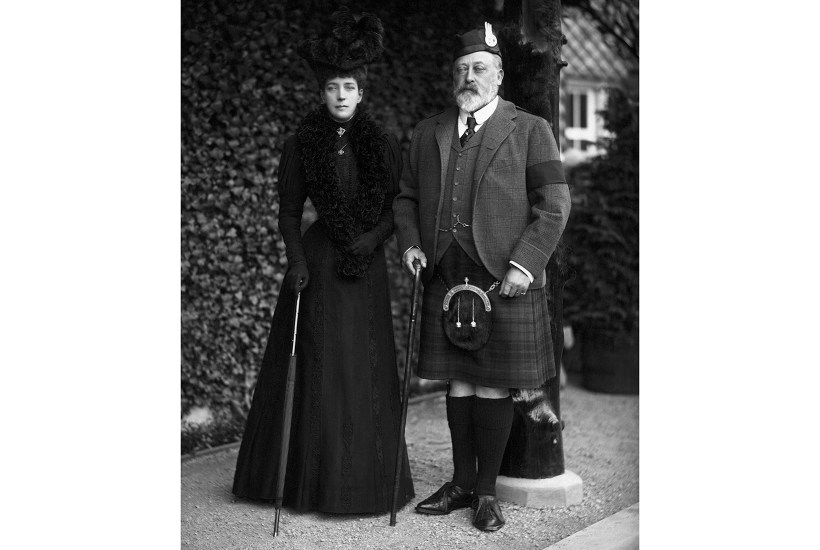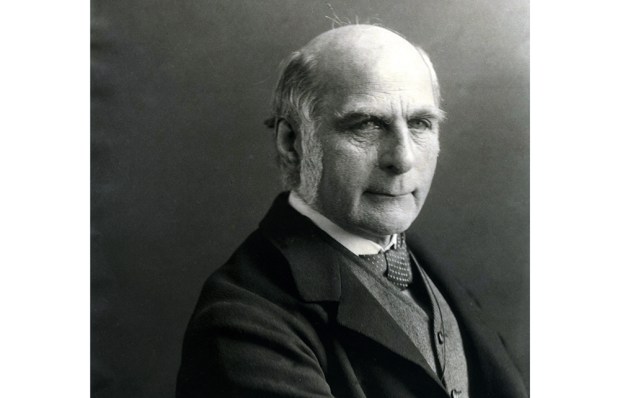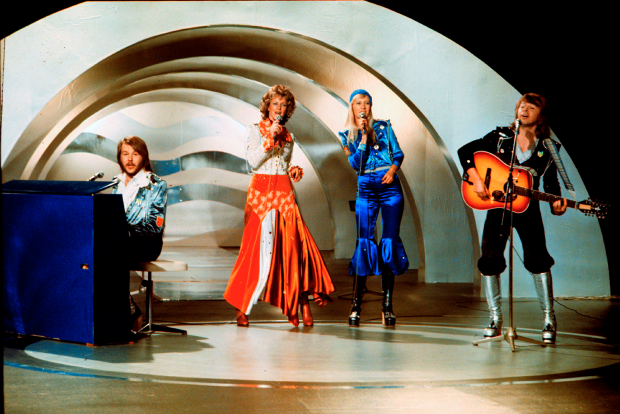When it comes to history programming, television’s loss is increasingly audio’s gain. People moan to me most weeks over the lack of really good, rigorous, eye-opening documentaries on the screen, and I can only nod along in agreement. Oh for a Kenneth Clark-style lecture! More Michael Wood! There’s an especially strong appetite for the adventurous commissions of the 1990s and 2000s. It’s principally podcasts, now, that are pouring into this void.
Stephen Fry’s Edwardian Secrets, a 12-episode sequel to his previous series on the Victorians, even sounds like an extended BBC4 documentary, replete with talking heads, choral background music and just a dash of Horrible Histories. Unfortunately, it also suffers from the malady of much modern history-making, with its explicit emphasis on ‘relevance’. In the first episode, we are assured that ‘our concerns’ about fake news, black lives and the status of women were also very pressing in the Edwardian era. Heaven forfend that there should be a period exhibiting no parallels with the 21st century whatsoever.
How self-centred it’s all become. Must all history cater to taste? The assumption that something isn’t worth hearing unless we can instantly recognise ourselves in it seems to me unfounded. A veiled trigger warning for ‘scenes of excess’ in one of Fry’s episodes left me similarly bemused. Since when did a bit of theatrical panting offend anyone?
The panter transpired to be none other than Edward VII: Dirty Bertie, Edward the Caresser, Tum-Tum — the fat king with the custom-made sex chair. ‘You must either belong to the good, or to the bad in this life,’ his father, Prince Albert, once wrote to him. Bertie’s own view was rather ‘Nobody is always good’. The tutor who described his young charge as ‘very passionate’ in the classroom on account of his hurling of furniture spoke only too presciently.
Despite my misgivings about the framing of the series, the episodes on Bertie, in particular, were jolly good fun. In ‘Big Helpings’, we heard how the prince progressed from a rebellious comfort-eater who accustomed himself to five meals a day to a fully fledged gourmand with international appetites. Swanning off to the French Riviera and the Moulin Rouge at the drop of a hat, Bertie ate so heartily that chef Escoffier could claim that, between them, they were responsible for the Entente Cordiale.
As much as he loved his rosbif, Bertie found dinners at home unbearable. His wife, Alexandra, said food historian Annie Gray, was ‘almost certainly anorexic’, and in the habit of feeding her portion to the dogs. Bertie would surely have accepted a second helping. In our age of fat-shaming, Gray’s descriptions of big Bertie and the equally generous dimensions of some of his contemporaries were enough to prompt proverbial applause from this listener.
What a fount of knowledge is ‘the deliciously frank Annie Gray’, as Fry calls her. She rather steals the show with her exuberant wit and descriptions of everything from Bertie’s priapism to the challenges presented by teaspoons at garden parties. Equally, it’s always good to hear from Bertie’s biographer, Jane Ridley. The only pity is that the authors are never in direct conversation with Fry, whose brilliant, ever-funny commentary is spliced together with theirs, a set-up which can feel artificial.
If it’s Fry in conversation you want, he is the latest guest on not one but two episodes of Minnie Questions with Minnie Driver, a podcast loosely based on the Proust Questionnaire. Boiling the original parlour game down to seven questions, the actress asks each of her interlocutors where and when they have been happiest in their lives, what they like least about themselves, which of their relationships best defines love for them, what question they most want answered, who or what has shaped them most, what their last meal would be and what good they’ve seen grow out of disaster.
Driver is eminently likeable. She becomes so engrossed by what her interviewees have to say, in fact, that she habitually slips into their accents. Conversing with Stephen Fry about his first ‘Petrarchan’ love and ‘little rumpy-pumpy tussle in the grass’, the London-born, US-dwelling host sounds as English as can be. With LA actress Anna Faris, who recounts her pride in her ability to forgive a ‘dear, dear, dear friend’ who slept with her husband, Driver becomes a tomate-o-loving American. I found this more intriguing than irritating and looked forward to her interviewing someone from Proust country.
Got something to add? Join the discussion and comment below.
Get 10 issues for just $10
Subscribe to The Spectator Australia today for the next 10 magazine issues, plus full online access, for just $10.
You might disagree with half of it, but you’ll enjoy reading all of it. Try your first month for free, then just $2 a week for the remainder of your first year.














Comments
Don't miss out
Join the conversation with other Spectator Australia readers. Subscribe to leave a comment.
SUBSCRIBEAlready a subscriber? Log in